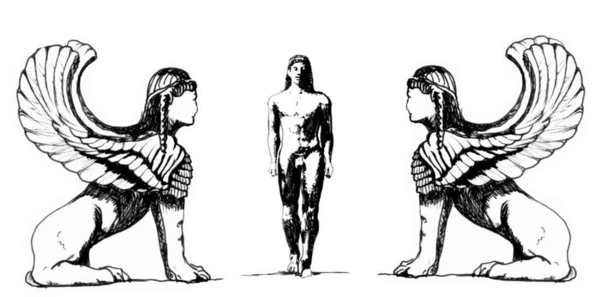
april 2005

THE
CHIMERA
Don't give animals
genes of humans
Mar. 27, 2005
By Jeremy Rifkin
What happens when you cross a human and a mouse? Sounds
like a bad joke but, in fact, it's a serious experiment
recently carried out by a research team headed by
molecular biologist Irving Weissman at Stanford
University. Scientists injected human brain cells into
mouse fetuses, creating mice that were about % human.
Weissman is considering a follow-up experiment to produce
mice
whose brains have 100% percent human cells.
What if the mice escaped the laboratory and began to
proliferate in the outside environment? What might be the
ecological consequences of mice with human brain cells
let loose in nature? Weissman says that he would keep a
tight rein on the mice and if they showed the slightest
signs of humanness, he would kill them. Hardly
reassuring.
In a world where the bizarre has become commonplace, few
things shock the human psyche. But experiments like the
one that produced a partially humanized mouse stretch the
limits of human tinkering with nature to the
pathological.
This new research field creating hybrid creatures out of
different species is at the cutting edge of the biotech
revolution and is called chimeric experimentation (after
the monster of Greek mythology that was part lion, goat
and serpent).
Scientists are looking to break the final taboo in the
natural world crossing humans and animals to create
human-animal hybrids of every kind and description.
Already, scientists have created pigs with human blood
running through their veins and sheep with livers and
hearts that are mostly human.
The experiments are designed to advance medical research.
Many genetic engineers argue that human-animal hybrids
will usher in a golden era of medicine. Researchers say
the more humanized they can make research animals, the
better able they will be to model the progression of
human diseases, test drugs and harvest tissues and organs
for transplantation into human bodies.
Some researchers are speculating about human-chimpanzee
chimeras creating a humanzee. A humanzee would be the
ideal laboratory research animal because chimpanzees are
so closely related to human beings. Fusing a human and
chimpanzee embryo could produce a creature so human that
questions regarding its moral and legal status would
throw 4,000 years of ethics into utter chaos. If the
purpose of creating this hybrid is to perform medical
experiments, could those experiments possibly be morally
permissible?
Are we on the cusp of a biological renaissance or sowing
the seeds of our own destruction?
What scientists fail to mention is that there are other
equally promising and less invasive alternatives to these
experiments. There's sophisticated computer modeling to
study disease and test the effectiveness and toxicity of
drugs. There's in vitro tissue culture, nanotechnology
and artificial prostheses to substitute for human tissue
and organs.
The price of chimeric experimentation is too steep. We
should draw the line at this type of experimentation and
prohibit any further research into creating human-animal
chimeras.
Jeremy Rifkin is the author of "The Biotech
Century" He wrote this
for the Los Angeles Times.
http://www.fortwayne.com/mld/journalgazette/news/editorial/11244357.htm